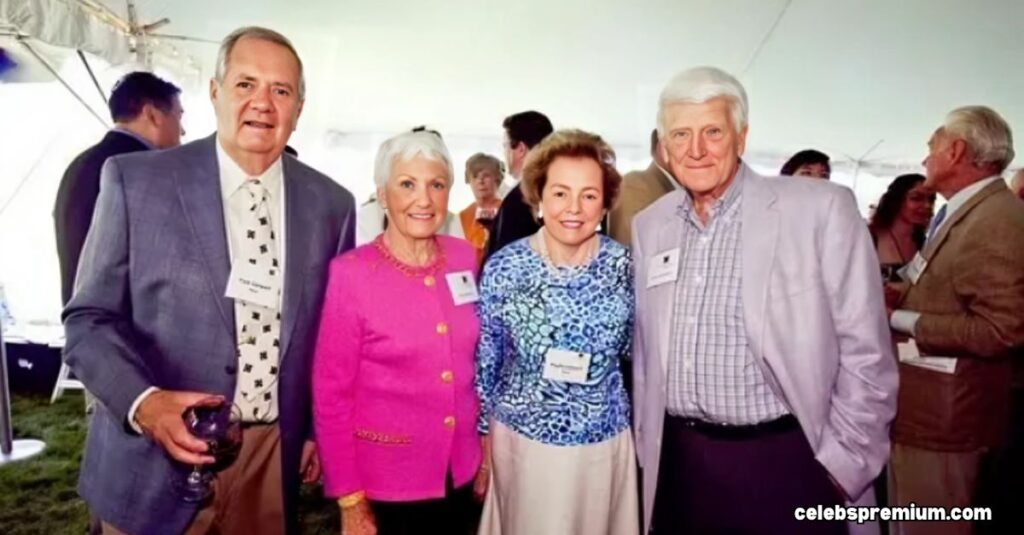The Cargill-MacMillan family stands as a paragon of dynastic stewardship in the world of private enterprise. With a combined net worth estimated at over $60 billion, they helm Cargill Inc., the largest privately held company in the United States. This article delves into the family’s history, their professional endeavors, philanthropic efforts, and the legacy they continue to build.
The Family’s Wealth Distribution
| Family Member | Estimated Net Worth |
|---|---|
| Pauline MacMillan Keinath | $8.2 billion |
| Marianne Liebmann | $5.3 billion |
| James Cargill II | $4 billion |
| Austen Cargill II | $4 billion |
| Cargill MacMillan III | $1.3 billion |
The Genesis of a Global Empire
In 1865, William Wallace Cargill established a grain storage facility in Conover, Iowa. This modest beginning laid the foundation for what would become a multinational corporation with operations spanning over 70 countries.
Today, Cargill Inc. is a leader in global agriculture, commodities trading, and food production, with revenues exceeding $160 billion in 2024.
The Cargill and MacMillan Families: Custodians of Wealth
The Cargill and MacMillan families jointly own approximately 88% of Cargill Inc., making them one of the wealthiest families globally. The family’s wealth is distributed among at least 100 members, with 21 individuals listed as billionaires by Forbes. Notable members include:
- Pauline MacMillan Keinath: Estimated net worth of $8.2 billion.
- Marianne Liebmann: Estimated net worth of $5.3 billion.
- James Cargill II: Estimated net worth of $4 billion.
- Austen Cargill II: Estimated net worth of $4 billion.
- Cargill MacMillan III: Estimated net worth of $1.3 billion.
See Also : John Teets Net Worth AND Financial Success

Cargill Inc.: A Powerhouse in Global Agriculture
Cargill Inc. operates across various sectors, including:
- Grain Trading: Dominating the global grain business.
- Commodities Trading: Engaging in commodity markets and trading industries.
- Food Production: Involved in meatpacking and food processing.
- Financial Services: Providing risk management and financial solutions.
The company’s expansive reach and diversified portfolio contribute significantly to the family’s wealth.
Family Governance: A Model of Private Ownership
The Cargill-MacMillan families maintain a family-owned governance model, ensuring that leadership remains within the family. This structure has facilitated long-term strategic planning and stability, allowing the company to navigate challenges and capitalize on opportunities effectively.
Philanthropy: Giving Back to the Community
The Cargill-MacMillan family is deeply committed to philanthropic efforts. Their charitable contributions focus on:
- Education: Supporting educational initiatives and institutions.
- Healthcare: Funding medical research and healthcare programs.
- Environmental Sustainability: Investing in eco-friendly farming and sustainable agriculture practices.
These endeavors reflect the family’s dedication to societal well-being and environmental stewardship.
Here is a detailed Cargill-MacMillan Family Bio Table (2025), summarizing essential background, financial data, and roles within the company. This table enhances clarity and offers quick reference for readers interested in the family behind Cargill Inc., the global agriculture powerhouse.
Cargill-MacMillan Family: Full Bio Table (2025)
| Name | Born | Estimated Net Worth (2025) | Relation | Role/Title | Education | Key Contributions |
|---|---|---|---|---|---|---|
| Pauline MacMillan Keinath | 1934 | $8.2 billion | Great-granddaughter of W.W. Cargill | Largest individual shareholder | University of Minnesota (Unconfirmed) | Maintains largest family stake in Cargill Inc. |
| Austen Cargill II | 1951 | $4 billion | Great-grandson | Former Board Member at Cargill Inc. | University of Minnesota (Ph.D. in Biology) | Oversaw biological and environmental programs within the company |
| James R. Cargill II | 1949 | $4 billion | Great-grandson | Investor and Philanthropist | University of Colorado | Active in philanthropy, arts, and independent investing |
| Marianne Liebmann | Unknown | $5.3 billion | Great-granddaughter | Low public profile | Private Education | Passive shareholder, low public involvement |
| Cargill MacMillan III | 1960s | $1.3 billion | Great-grandson | Business Executive (Retired) | Yale University | Former leader in Cargill’s strategy and governance |
| Pilar Cruz (Non-family) | 1970s | N/A | Appointed Executive | Chief Sustainability Officer, Cargill Inc. | Cornell University | Leads sustainability and ESG efforts globally |
Additional Family Facts & Highlights
- Total Family Members with Stakes: Over 100
- Number of Billionaires in the Family: At least 21
- Ownership: Family owns ~88% of Cargill Inc.
- Company Founded: 1865 in Conover, Iowa
- Industry Focus: Grain trading, food production, commodities trading, sustainable agriculture
See Also : tucker carlson wife heiress net worth

Sustainable Agriculture: Pioneering Eco-Friendly Farming
Under the leadership of Pilar Cruz, Chief Sustainability Officer, Cargill has implemented initiatives aimed at promoting sustainable farming. These include:
- Regenerative Agriculture: Encouraging practices that restore soil health.
- Zero-Emission Barges: Reducing carbon footprints in transportation.
- Deforestation-Free Supply Chains: Committing to eliminate deforestation from supply chains by 2030.
These efforts underscore the family’s commitment to environmental responsibility.
The Next Generation: Preparing for Future Leadership
The Cargill-MacMillan families emphasize family leadership development through:
- Education: Providing opportunities for younger members to gain knowledge and experience.
- Mentorship: Pairing emerging leaders with seasoned executives.
- Governance Training: Educating the next generation on family governance and business operations.
This approach ensures the continuity of the family’s legacy and prepares future leaders to steer the company toward continued success.
Controversies and Challenges: Navigating Public Scrutiny
Despite their success, the Cargill-MacMillan family faces scrutiny over environmental and social issues. Notably, Cargill Inc. has been criticized for its role in deforestation in the Amazon rainforest. Indigenous activists have urged the company to halt practices contributing to environmental degradation. In response, Cargill has pledged to be deforestation-free in the Amazon by 2025 and across all supply chains by 2030.
The Legacy Continues
The Cargill-MacMillan family’s story is one of historical ascent, marked by strategic vision, resilience, and a commitment to family tradition. As they navigate the complexities of the modern business landscape, their focus remains on sustaining their family legacy while adapting to new challenges and opportunities.

Thomas William is an experienced blogger passionate about sharing insightful content on trending topics and lifestyle. With years of writing expertise, he delivers engaging and informative articles that resonate with readers worldwide.







